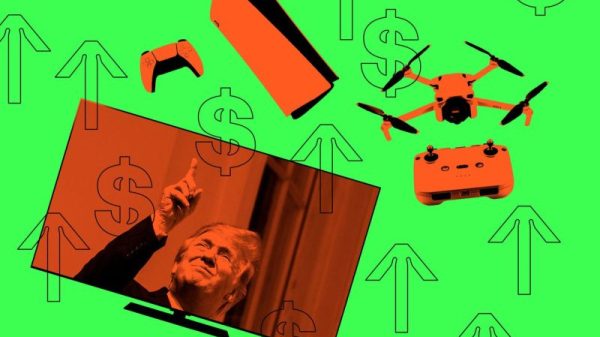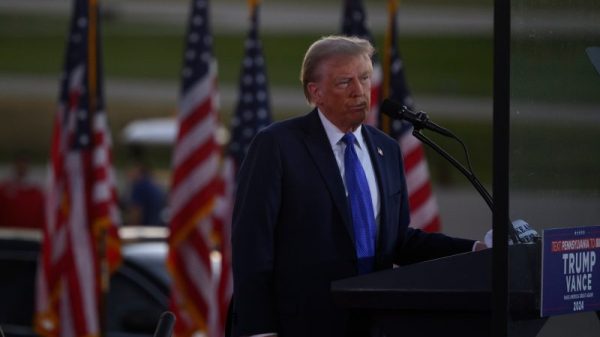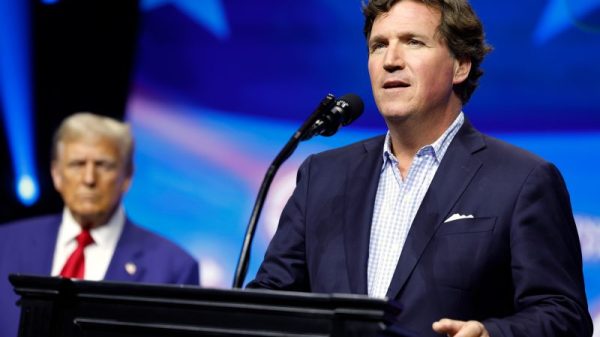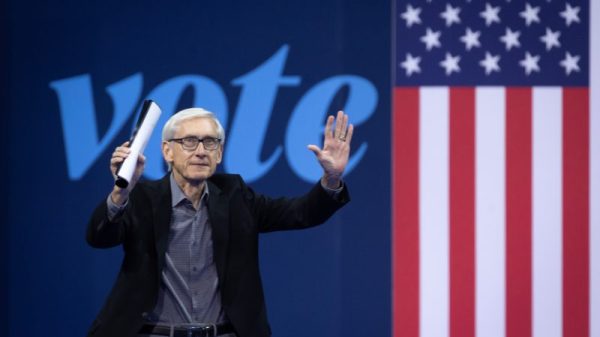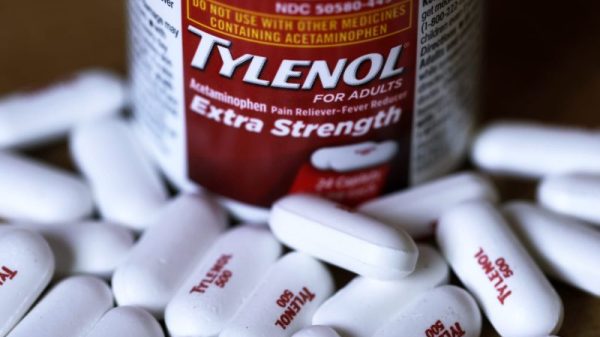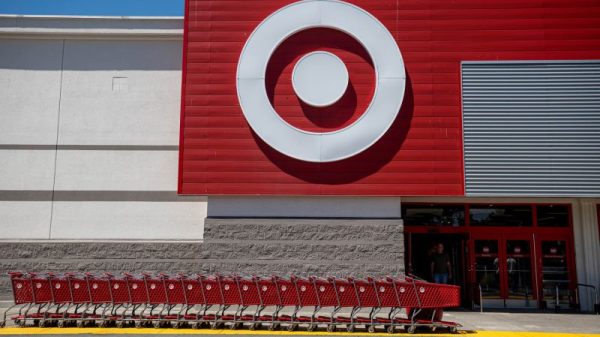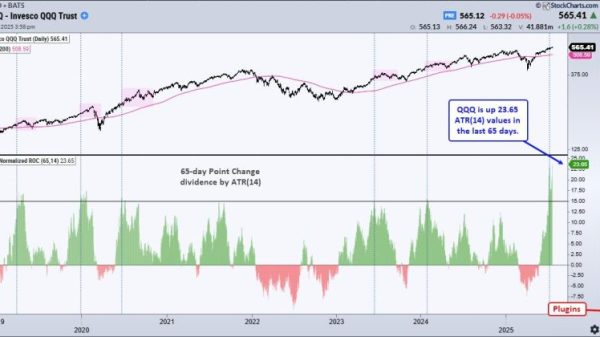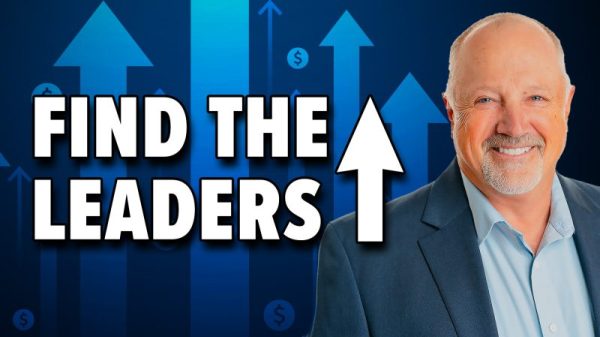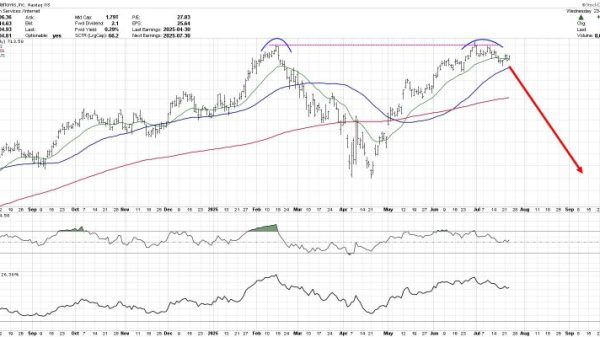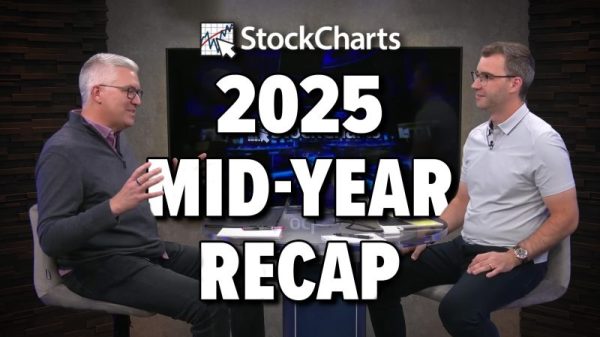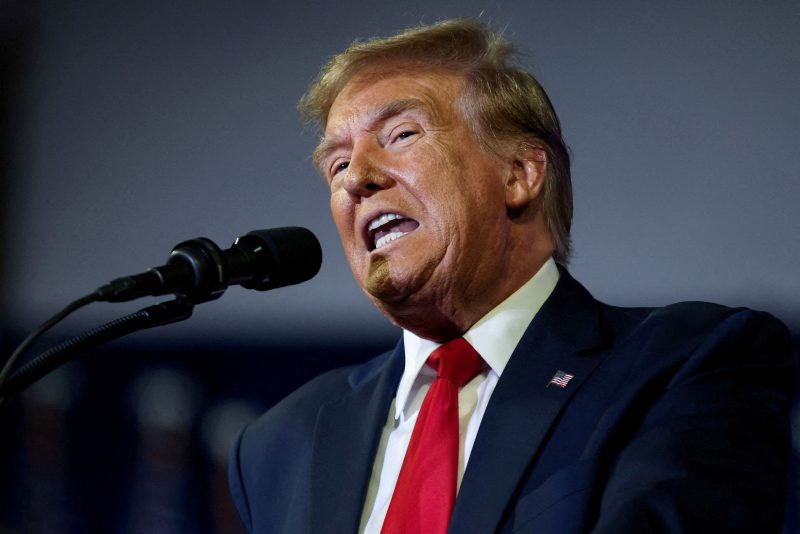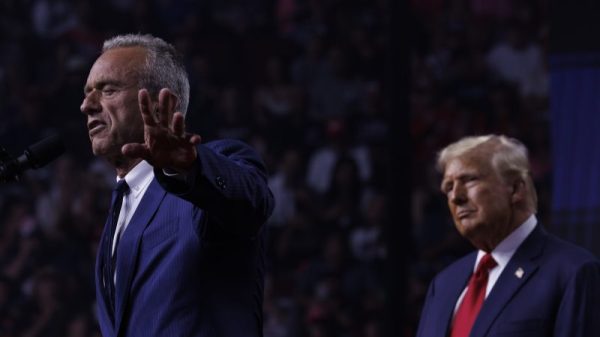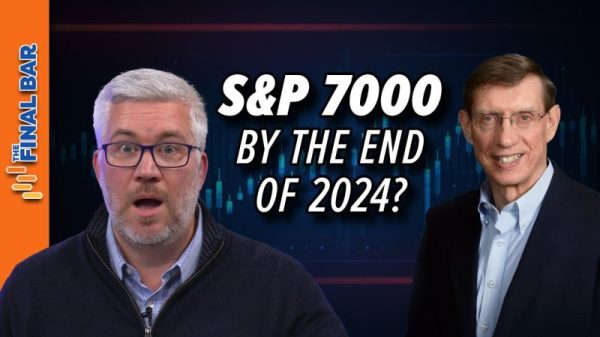“Remember this: Gasoline, fuel, oil, natural gas went up to a level that it was impossible … That’s what caused inflation, and we’re going to bring it down because we’re going to go drill, baby, drill.”
— Former president Donald Trump, remarks at a campaign rally in Las Vegas, Jan. 29
Under President Biden, U.S. inflation as measured by the consumer price index neared 9 percent in June 2022, the highest level in 43 years. While inflation has moderated — it was 3.1 percent in January — the price hike early in his term remains an albatross around Biden’s reelection chances. The lowering of inflation has improved consumer confidence, but the Federal Reserve has kept interest rates high, apparently not convinced inflation has moderated enough.
Trump exploits Biden’s vulnerability on inflation at every rally. But Trump being Trump, he exaggerates the impact of inflation and misleads about the cause — and then makes promises he can’t possibly keep.
Let’s take a tour through Trump’s misleading and false rhetoric on inflation in recent weeks. We sought comment from a Trump campaign spokesman but did not get a response.
Democrats “were saying that ‘one thing I will admit, if Trump were president, you wouldn’t have had Israel attacked, you wouldn’t have had Ukraine attacked, and you wouldn’t have had inflation.’ ”
— remarks at a campaign rally in Conway, S.C., Feb. 10
“We wouldn’t have had inflation because it was started by energy. It was started by oil, gasoline, which doubled, more than doubled.”
— remarks at same rally
“[If I had been president] there wouldn’t have been an attack on Ukraine, and we wouldn’t have had any inflation. Inflation was caused by energy, by fuel, by oil going to $100 and $110 a barrel.”
— remarks at the campaign rally in Las Vegas, Jan. 29
After decades of stable prices — inflation of about 2 percent a year — the sudden increase in Biden’s term was a shock, both for consumers and policymakers. But Trump falsely says inflation was caused by a spike in energy costs after Russian invaded Ukraine two years ago this month.
The invasion contributed to higher inflation, but it did not cause it. In fact, higher prices for goods and services would have happened no matter who was elected president in 2020. Inflation initially spiked because of pandemic-related shocks — increased consumer demand as the pandemic eased and an inability to meet this demand because of supply chain issues, as companies had reduced production when consumers hunkered down during the pandemic.
You don’t have to take our word for it. That’s the conclusion, broadly accepted by many economists, of an influential paper written by Oliver Blanchard, former chief economist of the International Monetary Fund, and Ben S. Bernanke, former chair of the Federal Reserve. It was published by the National Bureau of Economic Research in 2023.
Indeed, inflation rose around the globe — with many peer countries doing worse than the United States — because of pandemic-related shocks that rippled across the globe.
Of course, the debate over why inflation surged is still not settled. Blanchard and Bernacke also concluded inflation stayed high because of low interest rates and the impact of stimulus programs passed under Trump and Biden that put dollars in people’s pockets and spurred some of that demand. Biden’s bill, passed in early 2021, might have especially fueled spending — as some economists (including Blanchard) warned at the time it would. But that bill was passed a full year before the invasion of Ukraine. Liberal economists push back against blaming fiscal stimulus for inflation, saying that because inflation was a global phenomenon, U.S. policies shouldn’t get much blame.
Trump appears to pin the blame on Ukraine to avoid any accountability for the role his covid legislation (and the pandemic) may have played in rising inflation. He also cites an invented claim that unnamed Democrats (on a program he called “Deface the Nation”) said Ukraine would not have been invaded if Trump were president. We’re unaware of any Democrat making that statement.
As for the price of gasoline doubling, that would be correct if you started with the monthly retail price when Biden took office in January 2021 ($2.42, according to the Energy Information Administration) and ended with the high reached in June 2022 ($5.03). But if you date from the invasion of Ukraine, as Trump does, the price of gasoline was $3.61 that month — so that would be a gain of 40 percent, not 100 percent.
Meanwhile, gasoline prices have tumbled to $3.20 as of last month, so it’s now lower than before the invasion of Ukraine.
“Who can get elected with high interest rates, open borders, food that costs 40 percent, 50 percent, 60 percent more than it did just a few years ago?”
— remarks in a speech to the National Rifle Association, Jan. 24
“I mean, the inflation, what it’s done to people, it’s devastated people — 35, 40, 50 percent, if you think, for basic staples.”
— Remarks at the South Carolina rally
Biden is especially vulnerable to complaints about rising food prices — which overall have risen 20.3 percent, according to the Bureau of Labor Statistics data that measures inflation for dairy products, meats and fruits and vegetables.
Trump being Trump, he sometimes triples this statistic. In his NRA speech, he used this faux metric to suggest that the only way Biden could defeat him is through election fraud — a whole separate catalogue in Trump’s wheelhouse of falsehoods.
The strange thing is that Trump would have a perfectly good attack line simply by noting how much the cost of breakfast has gone up since Biden took office. There is no need for exaggeration.
Egg prices have increased about 72 percent during Biden’s presidency, mainly because of a bird flu outbreak. That’s a bit of an outlier. Even so, dairy products have gone up 16 percent, while bacon is up 13 percent. Cereals and bakery goods have gone up 25.6 percent.
“His inflation that he [Biden] caused and would’ve been so easy not to. All it was — is energy. Remember this, gasoline, fuel, oil, natural gas went up to a level that it was impossible … That’s what caused inflation, and we’re going to bring it down because we’re going to go drill, baby, drill. We drill, baby, drill. We’re bringing it way down.”
— remarks at the Las Vegas campaign rally
“In the first year, they [prices] are going to be reduced by 50 percent because we are going to drill, baby, drill, drill, baby, drill. Inflation is going to come way down, but in the first year, your energy costs are going down by 50 percent.”
— remarks in the NRA speech
Having established the false pretext that inflation was sparked by energy, Trump then jumps the shark to claim the solution to inflation is to expand domestic oil production. (He has also claimed that more oil production will magically eliminate the national debt.) He sometimes even rashly promises that he will reduce inflation by 50 percent in the first year of his presidency.
Inflation rises or falls because of a variety of factors, including the interest-rate level set by the Federal Reserve — which is beyond a president’s control. Trump betrays his failure to understand economic fundamentals when he makes statements like this.
Energy costs are volatile and so many economists prefer to focus on what is known as “core inflation” — the price of goods and services excluding energy and food. That’s because energy, like food, is a staple, and demand doesn’t change much no matter what the price. People generally need to keep driving cars and eating food. Oil and gas, along with some food products like pork, are also commodities and trade on exchanges, making prices subject to speculation depending on weather, wars and other unforeseen events. Egg prices, in fact, spiked as much as 230 percent in January 2023 because of the bird flu.
So the core inflation rate often is a better guide as to whether people’s income is rising fast enough so they retain their ability to keep buying products. When the overall inflation rate hit 8.99 percent in June 2022, the core inflation rate was much lower — 5.9 percent. But in January, the core inflation rate was 3.9 percent — higher than the overall rate of 3.1 percent. That’s because although gasoline prices fell, positively affecting the overall inflation rate, the price of rent surged. Without energy prices to mitigate the higher cost of shelter, the core inflation rate ended up higher than the overall rate. That’s one reason the financial markets reacted negatively to the January inflation report.
In a Feb. 4 interview on “Sunday Morning Futures,” host Maria Bartiromo pressed Trump on whether he had any other ways to bring down inflation besides oil production. Trump could only offer one answer — “drill, drill, drill.”
But here’s the rub: domestic oil production and natural gas production already hit record highs under Biden in December, according to the Energy Information Administration. There was slight dip in January because of production issues, but EIA projects the December production levels will be sustained through the rest of 2024.
(About our rating scale)
Send us facts to check by filling out this form
Sign up for The Fact Checker weekly newsletter
The Fact Checker is a verified signatory to the International Fact-Checking Network code of principles


